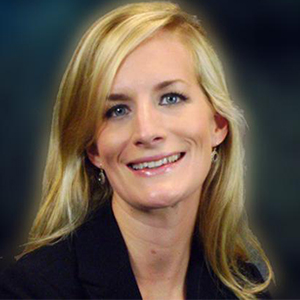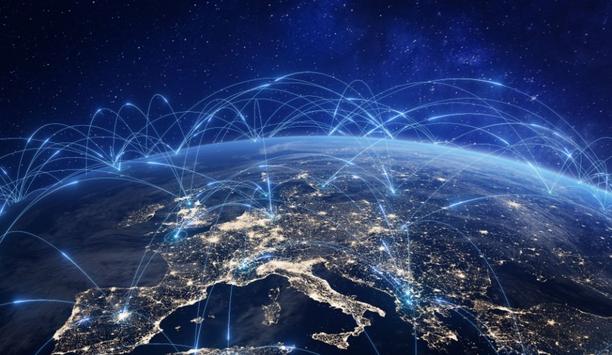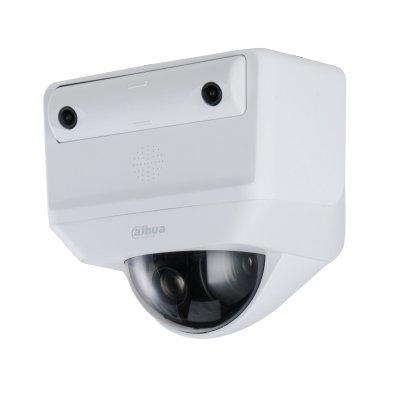What is the changing role of women in security?
Editor Introduction
There was a time when men dominated the physical security industry. On second thought, that time is today. Even with increasing numbers of women entering our community, it’s an industry that is still mostly populated by men. But change is coming, and the industry as a whole is benefiting greatly from a surge in female voices. We asked this week’s Expert Panel Roundtable: What is the changing role of women in security?
Having been viewed as a “male preserve” for many years, the security industry now finally realises the value and contribution of women. This is visible not only in the growing numbers of female security professionals, but also with more women taking leadership roles in organisations. Our female forebears struggled to gain the rightful recognition they deserved, but as society has changed so too have attitudes. Women are now seen as equals, but our industry still has a disproportionate balance in favour of men. Women no longer have narrowly defined roles in security; we can now enter any position – be that technical, managerial or right at the coalface of physical security. I am also pleased to see women recognised in security industry awards, reflecting our overall success. Ultimately, we need to reach a stage where gender isn’t even a factor and individuals are judged on their professional skills alone.
In security as in all industries, women’s roles are expanding. The past few decades have seen great growth in women’s career opportunities, yet roles were often limited to HR or marketing positions. Because security has been a traditionally male-dominated industry, it had lagged somewhat in this regard. Now, women are moving into sales and business roles with direct P&L responsibility, as well as a wide variety of jobs within the security industry. There are women technicians, security officers, integrators and business owners – and I am very proud of my position as President and Managing Director here at Boon Edam. As an industry we need to continue to encourage and mentor young women to enter the industry in every type of role. In that same way, we must create a more diverse workforce to leverage the talent in the market and represent our brands as we would want to be seen.
The security industry, like the technology industry, has a history of male-dominated roles. However, with the variety of roles increasing, the balance is changing. Technology companies focusing on creating gender-diversity in the workplace are reaping the benefits. The security industry needs to do the same in order to attract the best talent and enjoy the progress and thought leadership we are seeing in other verticals. Several studies have shown how women and technology is a powerful mix, revealing that the inclusion of women in leadership roles has a positive impact on company profits. The need for more women (and a diverse workforce in general) studying STEM-related subjects is being widely encouraged. We need to do more to market our industry and all the variety of career prospects. Bringing women into the industry from different backgrounds increases the range of new ideas, which can only be a good thing!
When I first began in the security industry in the 1990’s, it was clear that men were the primary decision-makers. I quickly realised that women had to do much more work to prove themselves before they could gain the respect of their peers, and that was just to get a seat at the table. Women in the C-suite or upper management positions were an even rarer sight. However, in the decades since, I can confidently say we have come a long way. We are seeing more women in management and senior executive roles than ever before. More women are speaking at conferences and taking an active role to shape our industry. I have seen a tangible shift to champion diversity within the workforce, exemplified by the creation of groups to advocate for these causes, like the Security Industry Association’s (SIA) Women in Security Forum.
I started working for Seagate Technology in 1999. Back then, the security industry was male-dominated. Since then, however, I have seen a gradual movement toward inclusion for women in security and in the surveillance sector, which has been incredibly encouraging to witness. Seagate, as a company, works to promote gender diversity in the organization and actively seeks to hire, retain and promote women in all levels of the organisation. This has expanded the roles of women in upper management, including myself. I know this is not the case with all technology companies, but even when attending trade shows over the years, I have seen more women presenting education sessions, spearheading new product initiatives, and influencing thought leadership. The job positions that women hold at security companies today have also greatly expanded to the point where women working in business development, product management and marketing are more common.
There’s a paradigm shift happening in the security industry as more women are making their way into what has historically been a highly male-oriented profession. The convergence of physical and cybersecurity allows more opportunity over the traditional physical security profession, where career paths typically began in law enforcement (another industry heavily saturated by male workers). Today, there are more leadership development and mentoring programs aimed at the success of women in security as organisations see the benefit in not only diversity, but in the keen eye for detail, multi-tasking, compassionate nature, and fresh outlook that a female workforce contributes to the industry. A diversified team means more creative ideas, more innovation, and better adaptability to the rapidly changing world. Women thrive in a workplace that is results-oriented, where goals have a high degree of clarity. In turn, they inspire others to come together, work harder, and improve overall productivity.
Women are becoming more empowered in the security industry! You can see the security industry embracing diversity and inclusion throughout the various currently women-held roles, which previously may have been more predominately held by men within the industry. As the security industry experiences rapid growth, and as IT and security technology evolves, there is a need for a much larger and more diverse talent pool. We are also hearing more about companies wanting their teams to mirror their customer base. Companies are now purposely looking to expand their teams by including, not only women, but all minorities and all ages. We are starting to see an influx of younger women coming up in the security industry, in part due to programs like STEM, which encourage women to take advantage of resources to pursue careers in the technology space. Organisations are also more aware of the value diversity can bring.
As women, it is our job to foster a diverse workplace and share the sense of opportunity with others who may either be new to the industry, might not feel their worth in the workplace, or are afraid to speak up and share their ideas. It is important that we take responsibility to bring others under our wing so that we have a legacy in the industry that we are proud of when we leave it one day.
We’re seeing women move into all roles within the security industry from the front lines to the back office and within many roles that have traditionally been male dominated. The effect is that the changing make-up of teams brings benefits from diversity of skillsets and diversity of thought. The industry itself is now more representative of the community it serves which in turn makes it easier to approach old problems in new ways.
I’ve observed a slow, but gradual ground swell in gender, age and cultural diversity across the entire ICT sector, which I believe has improved the quality and breadth of discussion – particularly around UX and CX – both at executive and governance levels. As a result, more women are stepping into leadership roles focusing on customer and channel engagement, which is driving far greater agility and innovation into a field previously considered rigid and transactional. This is an important step-change as we delve deeper into ethnography as applied to machine learning deployment, and its impact to the security sector.
When you attend trade shows and other industry events, you’re likely to see mostly older men in the forefront and with many women in administrative or marketing roles. The biggest challenge to change this is the conservatism and somewhat slow-moving nature of the security industry. It’s all about the perception of what it means to be a “security professional.” The security business stems from this outdated perception that you need to be physically imposing to work in physical security. This is simply not the case. As crime becomes smarter, more sophisticated and intellectual, the industry must change its own perception of what its workforce looks like, to be more inclusive and diverse. When combating today’s criminals, in both the physical and cyber worlds, it’s not about who’s the most physically imposing, but who is the most quick-witted and able to adapt to new trends and technologies.
Editor Summary
Today, women have a higher profile in the physical security than ever before, including networking opportunities, awards programs, mentoring initiatives, events and a growing number of organisations targeted to women in the security marketplace. The times are they are achanging, and hopefully our companies and organisations are more welcoming to women than ever before. We are all the better for it.
Expert commentary
- Mind the gap: Addressing cybersecurity at every phase of technology management
- When choosing an access solution, make total cost of ownership a key part of the calculation
- How Californian cities are improving surveillance and security - key developments from 2022 to 2024
- Healing through innovation: Securing healthcare in the cloud
Palm vein recognition
DownloadThe key to unlocking K12 school safety grants
DownloadSelecting the right network video recorder (NVR) for any vertical market
DownloadPhysical access control
DownloadCybersecurity for enterprise: The essential guide to protecting your business
DownloadVerkada Command Connector for Camera Integration & Cloud Management
Hikvision One-Stop SMB Solutions
Dahua X-spans Wizmind Network PTZ Camera


























